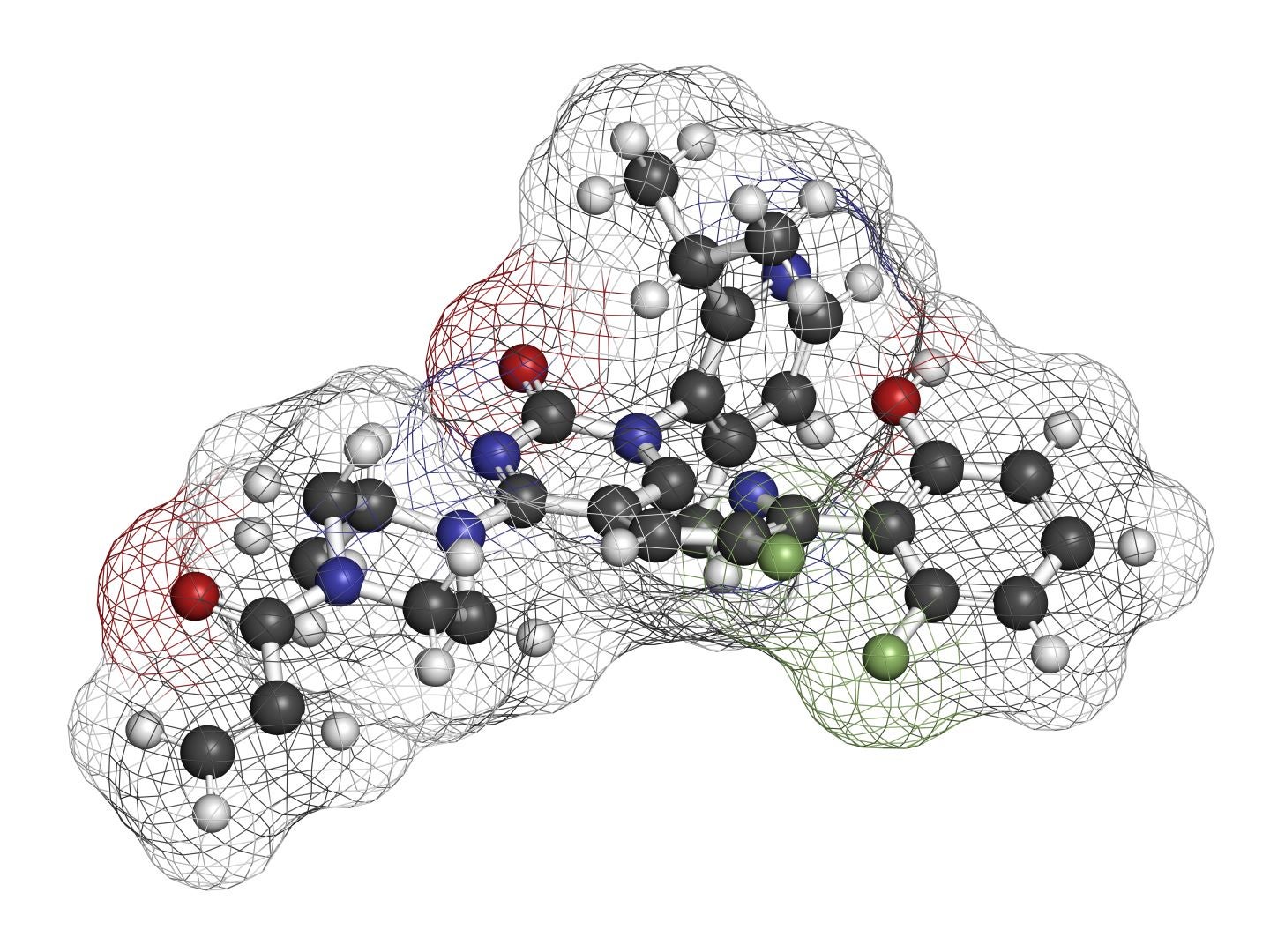Mutations in the RET (Rearranged during Transfection) receptor tyrosine kinase are highly prevalent in medullary thyroid cancer (MTC), with over 90% of hereditary and 25%-40% of sporadic MTC patients carrying a RET mutation. For metastatic MTC, the overall five-year disease-specific survival is about 50% with RET mutated MTC being associated with a more aggressive form of the disease and worse prognosis. Recent developments in tyrosine kinase inhibitors (TKIs) have made them the most administered therapies in the first-line treatment setting and have significantly extended disease-free survival for patients with the disease.
Current National Comprehensive Cancer Network guidelines have assigned category 1 recommendations to multi-TKI therapies, such as Sanofi’s Caprelsa (vandetanib) and Exelixis’s Cometriq (cabozantinib) for the treatment of metastatic RET-mutant MTC. The clinical performance of Eli Lilly’s Retevmo (selpercatinib) in RET-mutant MTC patients was recently revealed at the European Society of Medical Oncology conference on 21 October. Retevmo, a potent selective RET inhibitor, outperformed patients receiving either Caprelsa or Cometriq (control group) in progression-free survival (PFS) for the first-line treatment of advanced or metastatic RET-mutant MTC. The trial, LIBRETTO-531, enrolled 291 patients. After a year of follow-up and while the median PFS was not reached in the Retevmo group, the PFS was 21.1% greater when compared to the control (86.8% versus 65.7%). The treatment failure-free survival was also greater with Retevmo compared to the control group at 12 months. Adverse events leading to discontinuation of treatment between Retevmo and the control groups heavily favoured Retevmo, with an absolute reduction of 22.1% in treatment discontinuation.
The results of this trial arrived in conjunction with results from the Phase III LIBRETTO-431 trial, which enrolled 212 patients in the intention-to-treat population. The trial assessed Retevmo’s efficacy in the first-line treatment of RET fusion-positive non-small cell lung cancer (NSCLC). Currently, it is estimated that 1-2% of all NSCLC patients contain a RET mutation. Multi-TKIs have been considered for use in this small patient population but advances for this drug class are difficult considering their off-target effects linked to undesirable toxicity. The interim efficacy analysis of the LIBRETTO-431 trial demonstrated a large improvement in median PFS over platinum-based chemotherapy administered with or without Merck’s Keytruda (pembrolizumab) (24.8 vs 11.2 months, HR 0.46; P<0.001). The safety results of the trial were also consistent with previously reported adverse events. GlobalData’s analyst consensus forecast predicts global sales of Retevmo to reach $674m by 2029. The clinical benefits, in terms of efficacy, as well as tolerability, over existing TKIs make Retevmo a highly competitive option for RET-mutant malignancies. As the LIBRETTO-431 trail is not complete, it remains to be seen how well this therapy can perform against the Keytruda subgroup in terms of overall survival benefit. If these results are positive, Eli Lilly could corner most of the RET-mutant NSCLC and MTC market.






